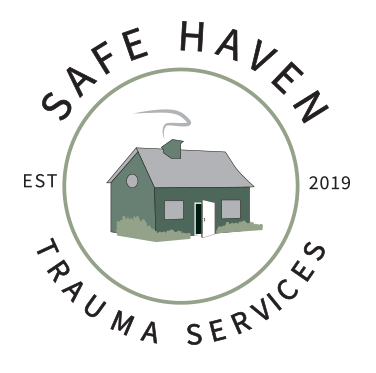Embracing Your Sensitivity
Earlier this week I wrote on why I don't like the name: highly sensitive person. Now, I'd like to discuss the reality of being highly sensitive and how you can learn to embrace your sensitivity.
Let’s start with what high sensitivity is and what it is not. High Sensitivity is a trait that is seen in about 15-20% of the population. It is a trait that you are born with. Elaine Aron even mentions that there are differences in the brains of highly sensitive people. They process information more deeply. They tend to think before they act. They are often observers that prefer to watch and assess the situation before joining in. For most HSPs these behaviors go back to childhood. They may be bothered by bright lights, strong smells, coarse fabrics, unpleasant sounds, etc. For me, my sense of smell is abnormally strong. I smell things that other people don’t and if something smells bad, it feels unbearable to me. For others it might be loud, unpleasant sounds. You don’t have to be sensitive to ALL sensory stimuli to be a highly sensitive person. They are also deeply affected by things. They pick up on other people’s emotions. They may know something is wrong without someone even saying a word. They notice their surroundings. They are often hyperaware of the things going on around them. They tend to be highly empathetic, hence identifying with the term, “Empath.” They can be easily offended by criticism or may be told they take jokes the “wrong way.” Due to these sensitivities, they are easily overwhelmed.
So what is high sensitivity not? It is not a developmental disorder, being on the spectrum, or autism. Although there is some overlap with sensory sensitivities, these things are not high sensitivity. It is not Borderline Personality Disorder. Although individuals with BPD are likely very sensitive, they generally do not possess the same level of empathy and care for others. HSPs generally do not like to offend people and are sensitive to how they say things, so as not to offend others. High sensitivity is not a disorder, it is a trait. It is not introversion. Although there are more introverted HSPs than extroverted, extroverted HSPs absolutely exist. I happen to be one of them! What about sensation seeking? If you are sensation seeking (another trait), does that mean you cannot be HSP? No, there are quite a few people who are both highly sensitive and sensation seeking. If you are one of those individuals your optimal level arousal is even smaller. More about that later!
How to Accept Your Trait
Most HSPs grow up in environments where their sensitivity is not valued. They are told they’re “too sensitive” or “weak” due to their sensitivity. You may have heard that your feelings aren’t important or that feelings don’t exist. If you are an HSP, you know that feelings absolutely do exist. Many of you may have at various times in life, wanted to get rid of our sensitivity. Though you may want to get rid of your sensitivity, you cannot get rid of it because it is a trait. It’s very much a part of who you are, but I have some good news for you. You can learn to accept and even value your sensitivity. So what do you do now? Below are some great ways to start learning to accept and value your trait.
· It is important to learn more about your trait of high sensitivity. Elaine Aron has several books out that are great for further education. There is not something wrong with you. You do not have a disorder when it comes to sensitivity, although you may be more prone to depression and anxiety due to how much things affect you.
· Find friends and family who value you for exactly who you are. If you don’t have family members who value your sensitivity, you can make a family of your own. No one deserves to be rejected for who they are as a person. I hear you that it hurts and that it’s painful. For me, that is part of my story. I have found the love and acceptance of people outside of my family to be incredibly healing.
· Find a therapist or counselor familiar with high sensitivity. They can help you heal from wounds from the past. It is so essential that you have a safe place where you feel accepted and valued for exactly who you are. Sometimes when you cannot do that for yourself, that connection with a therapist can help you learn to love yourself.
· Self-care is essential. Because you are easily overstimulated it is REALLY, REALLY important to make self-care a daily practice. HSPs need to stay in their optimal level of arousal to function best. For those who are also sensation seekers, this is an even smaller window. This is because you are both easily bored and easily overstimulated, so you have to find the right amount of stimulation to feel best. If you need time alone after a long day at work, don’t push yourself to go to happy hour. If you need to take a nap after a family gathering, allow yourself to do that. Find things that make you feel recharged. It might be a bubble bath or baking cookies. Find what works for you.
· Join a support group for people similar to yourself. When I was in graduate school, I started a support group for HSPs in my counseling program. I found the experience to be extremely helpful and healing. It’s incredible when you find a place where you feel safe and can be exactly who you are without the judgment of others who don’t understand. If you live in Brentwood, we are starting a support and process group for HSPs. Please look under the groups section of my website for more information.

